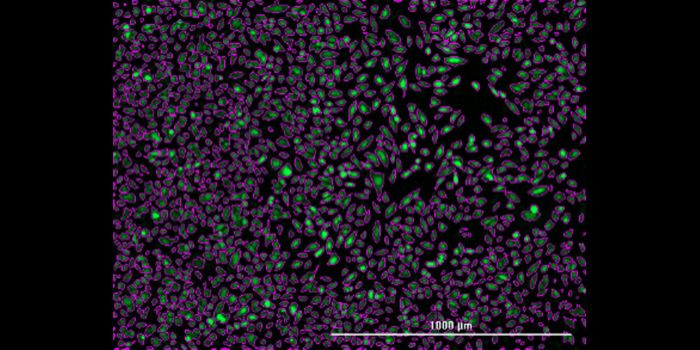Cats Carry a Parasite That can Reach the Brain
Cats are host to a common parasite, Toxoplasma gondii. It is estimated that a whopping 30 to 50 percent of all humans on the planet carry it, and the parasite has been shown to be capable of infecting the human brain, even impacting how people behave. Researchers at Stockholm University have now learned how this parasitic invader takes control of cells in the human body. This work has been reported in PLOS Pathogens and is outlined in the following video.
"We have decoded how the parasite takes control of immune cells, converting them into moving "zombies" which spread the parasite in the body," explained one author of the report, Antonio Barragan, a Professor at Stockholm University.
The Toxoplasma gondii parasite causes the infection toxoplasmosis, which is also found in a few other species aside from cats and humans. Infected rats experience effects in their brains; such rats apparently lose their natural fear of cats and even become attracted to the smell of cats. That makes them very easy prey, and because cats ingest the infected rats, the parasite ensures its own survival, turning the host into a ‘zombie’ that does it’s bidding.
Toxoplasmosis only becomes life-threatening when it affects those with impaired immune systems, or unborn fetuses. The parasitic infection causes mild symptoms in healthy individuals. However, some studies have shown that mental illnesses like depression and anxiety, and even schizophrenia are more commonly observed in people who are also carrying Toxoplasma gondii. Some research has suggested that the parasite could affect risky or aggressive behavior too.
Now Stockholm University scientists determined that the parasite takes immune cells over, forcing them to spread the parasite around the body. Eventually, those cells get to the brain.
The parasite often enters the body when someone ingests it, whether from inadvertent contact with cat feces or from meat that has not been thoroughly cooked. After reaching the stomach, it moves through the wall of the intestine and instead of being killed by immune cells that encounter it, those cells are spurred to act as Trojan horses that spread the infection.
"Is it a coincidence or evolution? It resembles how nerve cells speak to each other in our brains,” noted Antonio Barragan.
The researchers have shown that a small messenger molecule, calcium, acts in that process. A new calcium receptor was found on the surface of immune cells; it takes the marching orders from the parasite.
"The neat thing is that the signal can be inhibited by regular blood pressure medicine. When mice received the medicine, the spread of the parasite was inhibited. We do not want to say that blood pressure medicine can cure toxoplasmosis, but we have discovered a new signaling pathway in immune cells that is linked to their motility and that the parasite utilizes in a very smart way. This helps us understand how the parasite is spread and disease occurs. In the longer term, it may help us develop targeted treatments for infection," concluded Antonio Barragan.
Sources: AAAS/Eurekalert! Via Stockholm University, PLOS Pathogens











